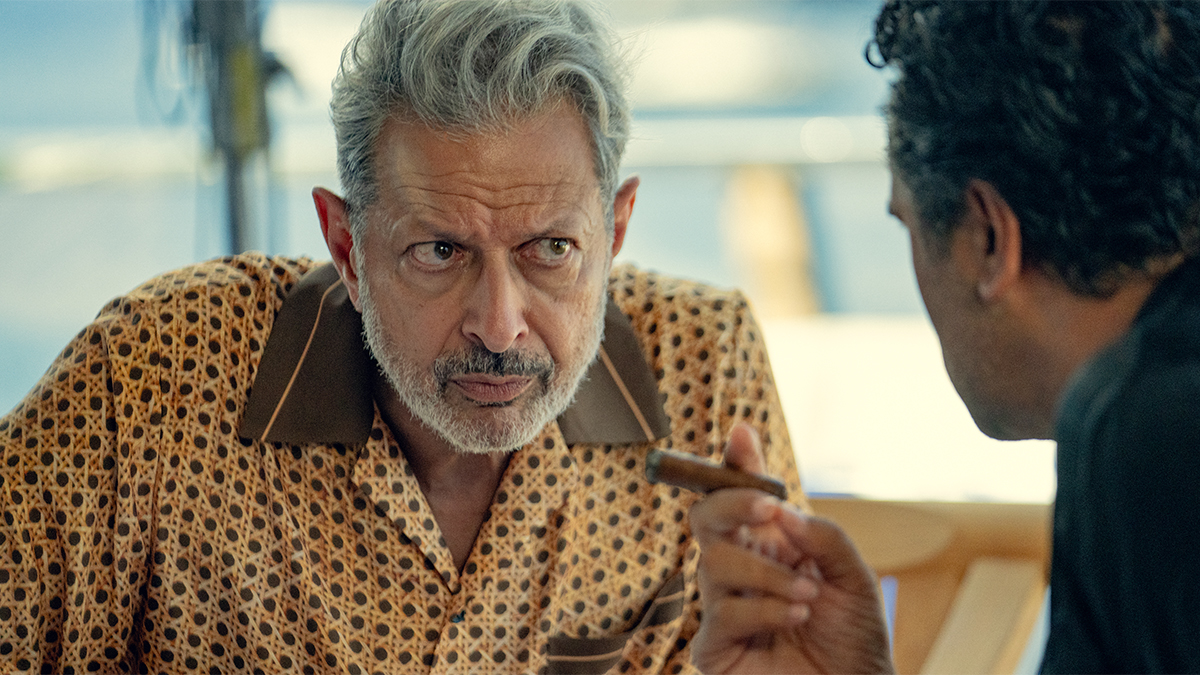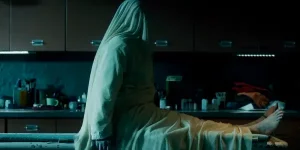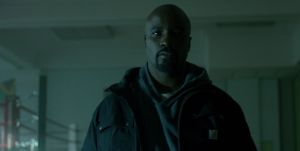
On August 29, Netflix released adult fantasy series KAOS, a visionary retelling of Greek myths with a stellar cast of Olympian gods and goddesses led by Jeff Goldblum and Janet McTeer. Den of Geek loved it, not everybody else did, but this isn’t about critical opinion; it’s about the reports that arrived 40 days after KAOS’ release date that it had been cancelled after just one season. KAOS had come and gone inside the lifespan of one of Hera’s honeybees.
The cancellation news (which first came in a since-deleted Instagram post from cast-member Aurora Perrineau as reported by What’s On Netflix) was met with a mix of outrage from those who loved KAOS, and frustration from those who hadn’t gotten around to watching it yet.
There was also a sense of resignation. Of course the show was cancelled after one season, did you see how much it must have cost? What about those locations, sets, VFX work and spendy soundtrack hits, never mind the fact that it had Jeff Goldblum as an actual lead instead of a big name cameo who doesn’t last beyond the first episode? How many episodes of Married at First Sight do you think Netflix could make for the budget of an hour spent in KAOS creator Charlie Covell’s bold, clever and cool imaginary world?
For KAOS to generate the kind of viewer numbers that might keep it afloat on a streamer, everybody and their dog would have had to have watched it, twice. KAOS though, wasn’t for everybody and their dog. It was nerdily esoteric, Queer, and divisive. It used its imagination and did some weird shit, from its roofless chamber of severed tongues flapping in drawers, to the glitzy gameshow where the bereaved compete to bring a loved one back from the dead, to a character snapping the neck of a just-born baby he’d conceived minutes earlier, and his wife turning its post-partum mother into a bee.
Kudos to Netflix for commissioning it in the first place and letting all that strangeness play out in style, but the streamer had to know that it didn’t have another Virgin River on its hands here. Requiring it to get the ratings of one to survive into a second season was dooming it to fail. KAOS was both niche and expensive: two things that Netflix shows now struggle to be.
As British screenwriter Sophie Petzal (Blood, Hollington Drive) wrote on X in a discussion about the KAOS cancellation: “What needs to be more widely understood is this is about the unsustainable budgets that have been part of the streaming conquest the last decade. The shows being cancelled were greenlit in a different age/economy. The bar for success at this price point is unreachable.”
It wasn’t always like this. In 2018, the year that KAOS was commissioned, Netflix bosses boasted of spending $8 billion (roughly a dollar for every person on the planet) on 700 original shows. It was a bonanza. In the subscriber model, huge hits would support fringe titles, and the race was on to have both the biggest and broadest slate possible. Between 2017 – 2019, Netflix signed big-money multi-year overall deals with producers Shonda Rhimes, Ryan Murphy, Game of Thrones’ DB Weiss and David Benioff and more. They commissioned like crazy. Other streamers competed and the era of #toomuchtelevision was upon us.
Then came 2020 and the Covid pandemic shutdowns and their knock-on global economic effect. After that came the (necessary) WGA and SAG-AFTRA strikes. Many of those creator overall deals have now run their course, advertising revenue – for those it affects – has dropped significantly, new commissions have been stripped back, and here we are, in different, straitened times.
Streamers are still commissioning and renewing shows of course. In the last 24 hours, Netflix rom-com Nobody Wants This and thriller The Diplomat were announced as getting new seasons. They just announced another Pride & Prejudice TV adaptation. What’s being commissioned now are established mainstream successes with accessibly broad appeal. KAOS is not that. After similarly early cancellations for The Bastard Son & the Devil Himself, Lockwood & Co, 1899 and more on Netflix, we can’t be surprised that it also wasn’t given a second season.
KAOS was a vestige of the streaming goldrush. It sat on Netflix under a “Coming Soon” placeholder for five years with a strapline promising “a modern twist on Greek and Roman mythology, exploring themes of gender politics, power and life in the underworld”. With every passing year since it was commissioned (initially for 10 episodes, later shortened to eight), it began to feel less and less likely that it would be made at all.
So, is it a case of ‘don’t cry because it’s over, smile because it happened’? Begrudgingly, perhaps. KAOS did happen, which is a win for lovers of strange and beautiful TV storytelling. Creator Charlie Covell’s statement about the cancellation, via production company SISTER, is gracious and grateful:
Usually, when we talk about TV shows that ‘wouldn’t be made today’, we mean outdated formats from decades ago that relied on cruel, retrograde laughs. Now, that phrase has broader application. To compare the current market to that of just five or six years ago, KAOS most likely wouldn’t be made today. It’s a bridge to somewhere that no longer exists, and turned out to be neither cheap enough or mainstream enough to be kept alive.
KAOS is streaming now on Netflix.
The post Netflix’s KAOS Felt Doomed to Cancellation From the Start appeared first on Den of Geek.








